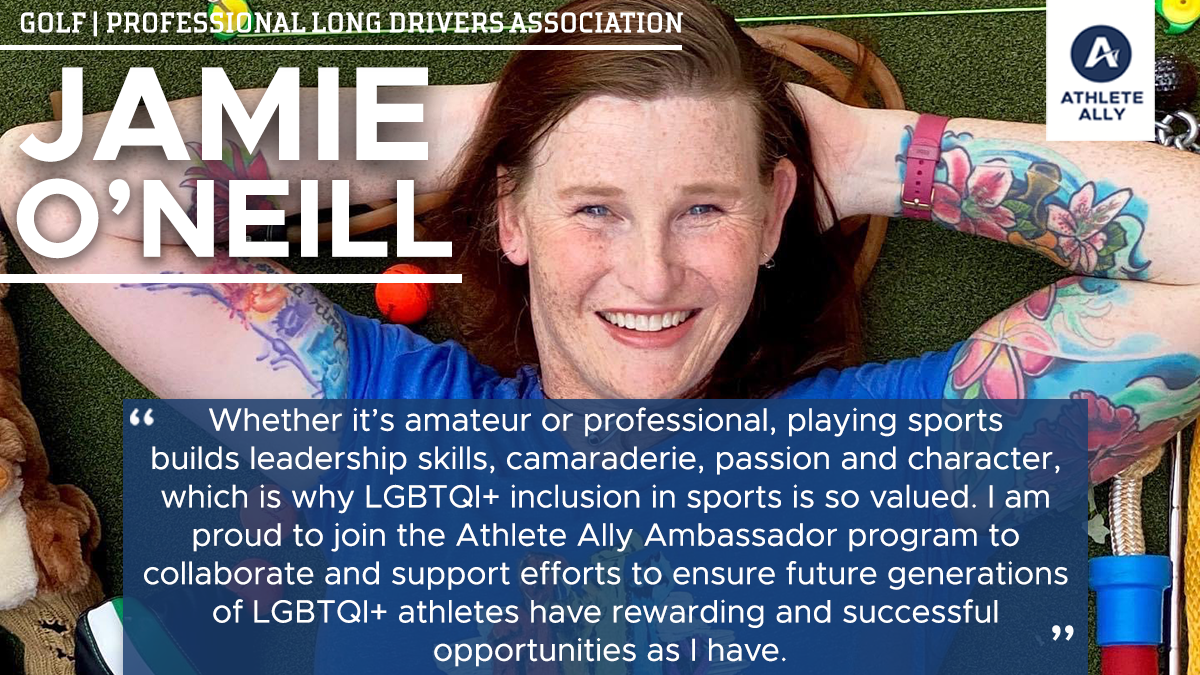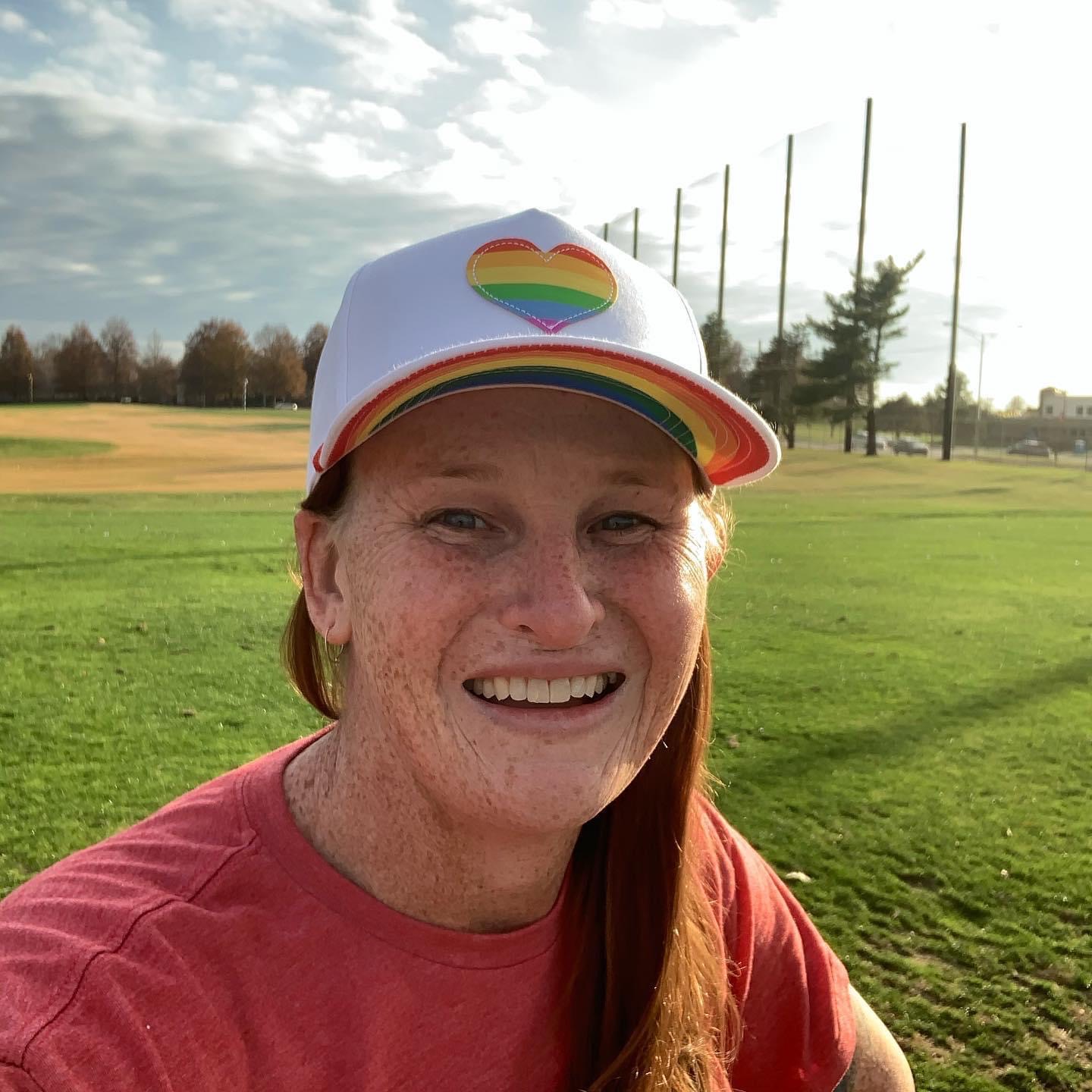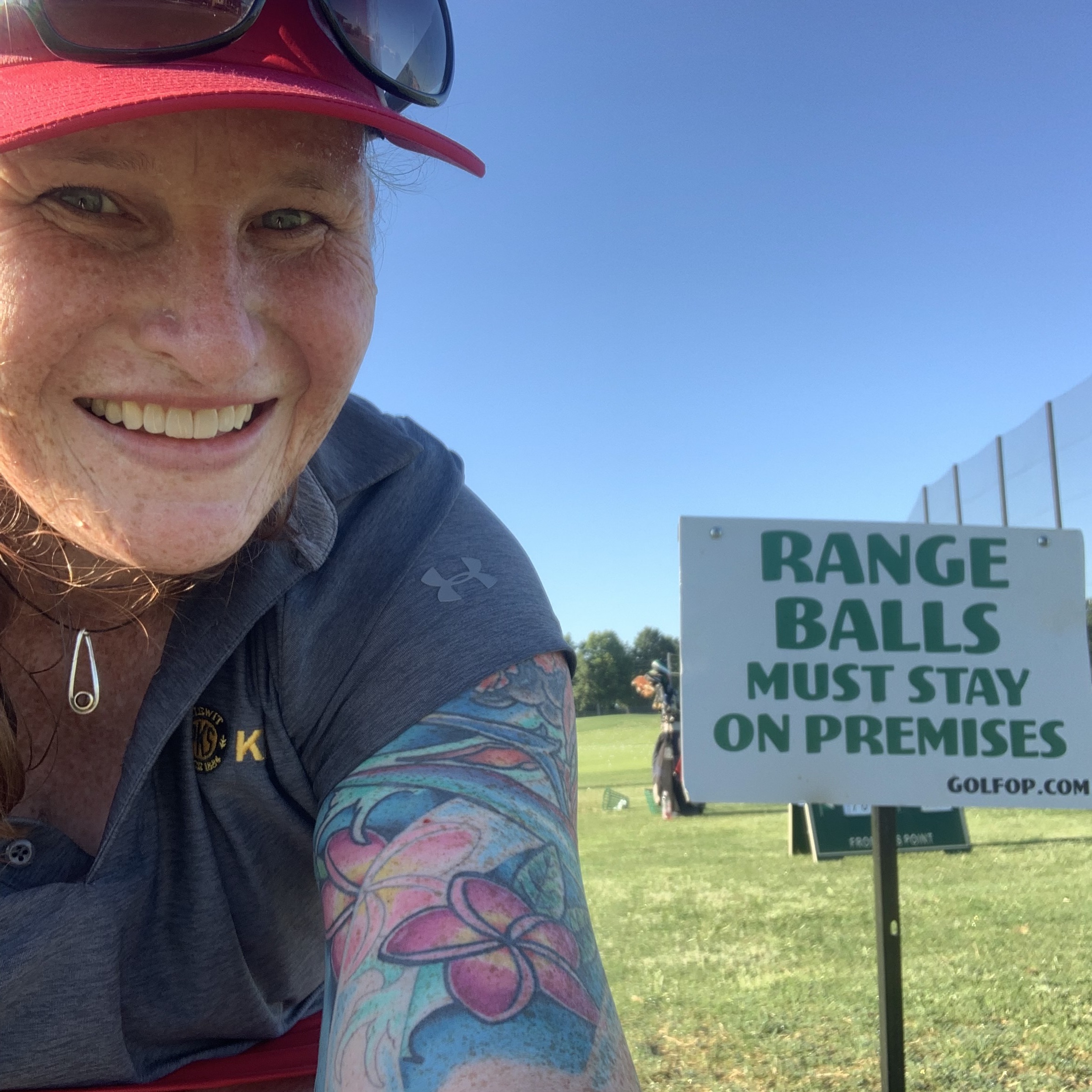Pro Golfer Jamie O’Neill: Fairness Means Inclusion

By: Jamie O’Neill, Athlete Ally Ambassador & pro golfer
A few years ago, I was asked why competing in sports as a transgender woman and lesbian was important to me. My answer is simple: I want to be a role model for future generations for LGBTQI+ kids who love playing sports, so that they will be able to compete at any level without harassment, intimidation, scrutiny or overreaching guidelines.
No human should be subjected to sexism, racism, ableism or anti-LGBTQI+ discrimination on or off the sports field, not to mention denial to healthcare, education or employment. Access to sports has been proven to provide individuals with self-empowerment, confidence, improved health, academic and professional success.
In 2010, at age 34, I made the difficult decision to start my transition. I was prepared to lose my family, my friends and my career. But, I knew I was not going to lose my life.
Transitioning is a personal and private experience. However, I decided to share my transition as an educational tool. There is no magic pill, no doctors handing out hormone blockers or Hormone Replacement Therapy (HRT) like tic tacs, no heading off to Hollywood for an Extreme Makeover episode. Instead, I had a journey that was long, painful and expensive. With the World Professional Association for Transgender Health (WPATH)’s “Standards of Care” in hand, a plan, a schedule and a timeline, I was able to set myself up for success.
I started living as an out trans woman on April 1, 2011 and underwent facial feminization surgery in Boston, hundreds of hours of electrolysis for hair removal, voice therapy and breast augmentation. My final gender-affirming surgery was performed a year later in Montreal and took six painful months to recover from. All of this cost me over $120,000.

In 2013, I started playing sports again. Looking to find my place in the LGBTQ community, I joined the North American Gay Amateur Athletic Alliance (NAGAAA) Slow Pitch Softball and later joined the Amateur Sports Alliance of North America (ASANA), a nonprofit women’s softball organization. Both of these were very accepting leagues, and I played in tournaments all over the country in addition to competing in The World Series in the C/D Divisions. In May 2019, I started another chapter of my life with a new career at an engineering company. We played golf during the summer as a team-building activity, and during one round, my coworker jokingly suggested that I compete in the World Long Drive (WLD).
This was the start of my journey to become a Professional Golf Long Driver as I planned to compete on the Golf Channel’s WLD tour. As a trans woman, my first step was to seek approval to compete. In alignment with their policies and guidelines, I was approved for competition.
In early spring of 2020, I signed up for my first event in Mesquite, NV. Within the week, COVID-19 restrictions and lockdowns came into effect. I was crushed. In the following months, Golf Channel ended the WLD events and shelved the brand.
In the latter half of 2020, I joined the Ultimate Long Drive (ULD) Xtreme Long Drive (XLD) Tour, and in 2022 I joined the Professional Long Drivers Association (PLDA). Both organizations have granted me approval to compete per their policies and guidelines. Golf Long Drive events have such an amazing atmosphere and energy: standing on the tee box, staring down the grid, watching the flags blowing in the wind, picking your line and your shot shape. The announcer calls over the speaker system, “Ladies, that grid is yours.” You have 6 balls to hit in 2-1/2 minutes. Time to tee it high and let it fly.

Finding the community within long drive has been life-changing. In addition to traveling to new places, I’ve met so many amazing organizers, coaches, competitors and fans. Whether it’s at a local league event or a tour event, everyone has encouraged me to meet my highest potential.
The International Olympic Committee (IOC) and the National Collegiate Athletic Association (NCAA) have had inclusive policies, guidelines and frameworks in place for the past 20 years. Now, sports federations are implementing bans on trans women without cause or adherence to the IOC’s “Framework on Fairness, Inclusion and Non-discrimination on the basis of gender identity and sex variations”. It’s difficult to believe that in 2022, professional transgender athletes still face discrimination, harassment, bullying, violence and bans from federations and associations.
This call for trans exclusion in sports comes from the perception that trans women have “competitive advantage,” despite a lack of any scientific proof that an advantage exists. From my point of view, we only need to look at the record books for the past 45 years. If transgender athletes have all of these advantages, where are the Olympic medals, world records or world championships for trans women athletes? They don’t exist.
What about fairness? Fairness means allowing trans women to compete. We win and lose, we pay our membership dues and competition entry fees, just like our fellow competitors. We should focus on what we know to be the true threats to women’s sports by calling for equal access to training, scholarships, sponsorships, media coverage, and most importantly, pay.
Halfway through the season, my best finish in a tour event was a tie for 3rd place. During this event, held in Denver, Colorado, I hit a new personal best of 348 yards / 318 meters. With several events left in the season, I will be striving for my first win. The PLDA World Women’s Championship will be in Japan, hosted by the Japan Professional Dracon Association and Srixon. The Ultimate Long Drive Xtreme Long Drive World Championships will be in Lakewood Ranch, Florida.
I’m thrilled to be joining Athlete Ally today as an Ambassador, and to be a beacon for other transgender athletes who want to compete in the sports they love.
Photos courtesy of Jamie O’Neill.
Want to receive stories like this in your inbox? Sign up here.